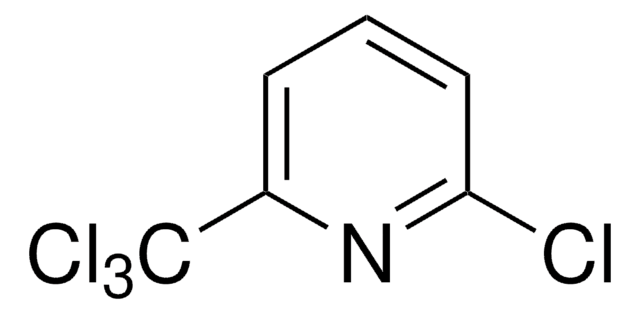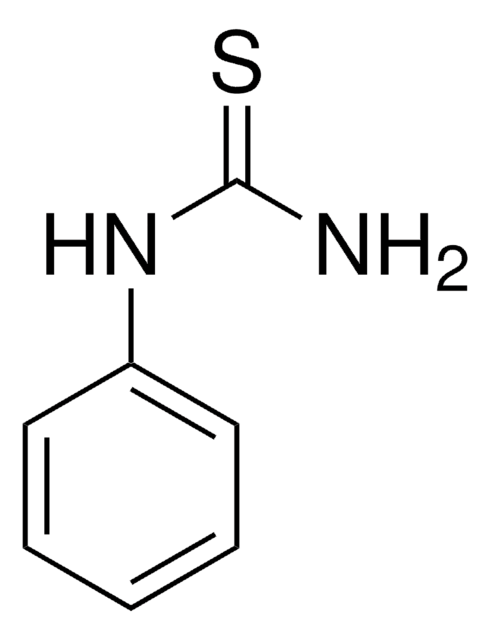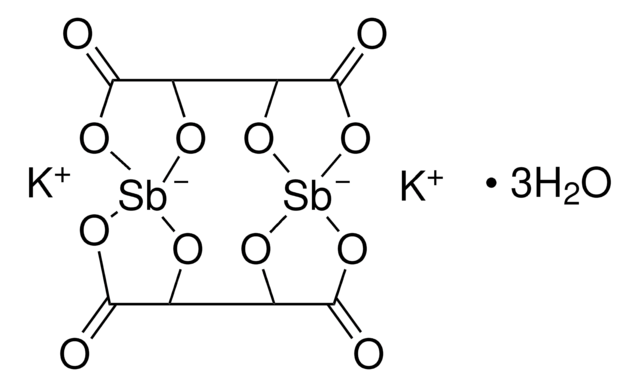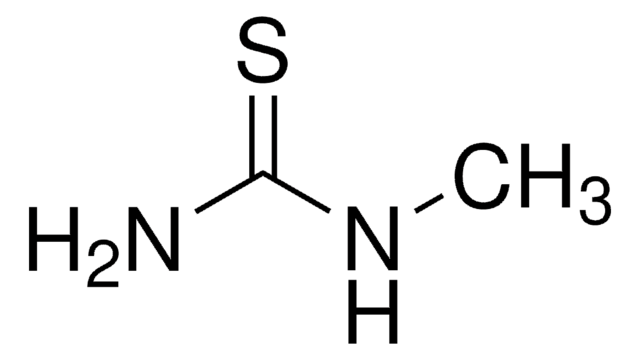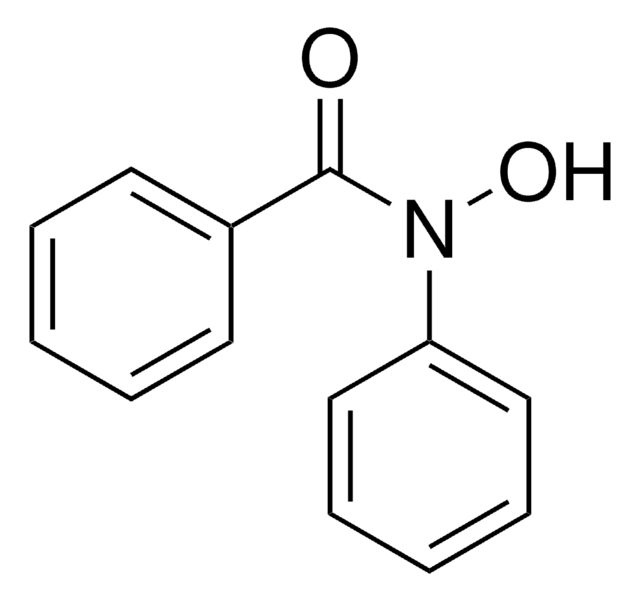108804
N-Allylthiourea
98%
Synonym(s):
1-Allyl-2-thiourea, Thiosinamine
About This Item
Recommended Products
Agency
suitable for SM 5210
Quality Level
Assay
98%
form
solid
mp
70-72 °C (lit.)
solubility
H2O: soluble 30 parts
alcohol: soluble
benzene: insoluble
diethyl ether: slightly soluble
density
1.11 g/mL at 25 °C (lit.)
functional group
amine
SMILES string
NC(=S)NCC=C
InChI
1S/C4H8N2S/c1-2-3-6-4(5)7/h2H,1,3H2,(H3,5,6,7)
InChI key
HTKFORQRBXIQHD-UHFFFAOYSA-N
Looking for similar products? Visit Product Comparison Guide
Related Categories
Application
Biochem/physiol Actions
Signal Word
Danger
Hazard Statements
Precautionary Statements
Hazard Classifications
Acute Tox. 3 Oral
Storage Class Code
6.1C - Combustible acute toxic Cat.3 / toxic compounds or compounds which causing chronic effects
WGK
WGK 3
Flash Point(F)
Not applicable
Flash Point(C)
Not applicable
Personal Protective Equipment
Choose from one of the most recent versions:
Already Own This Product?
Find documentation for the products that you have recently purchased in the Document Library.
Customers Also Viewed
Our team of scientists has experience in all areas of research including Life Science, Material Science, Chemical Synthesis, Chromatography, Analytical and many others.
Contact Technical Service

